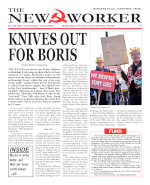The Belt and Road Initiative was launched in 2013 to build a trade, investment and infrastructure network connecting Asia with other parts of the world along the ancient Silk Road trade routes and beyond.
Since then the BRI has promoted economic prosperity and sustainable development. Under the initiative, a large number of highway, railway, airport and seaport projects have been carried out in Belt and Road countries, and important progress has been made in building "six corridors, six connectivity routes and multiple countries and ports", and the building of a multi-dimensional infrastructure network has been accelerated.
The Belt and Road Initiative has also improved people's livelihoods and facilitated sustainable development in several countries. Currently, the 82 economic and trade cooperation zones under the Initiative have created about 300,000 local jobs. During the construction of the Mombasa-Nairobi Standard Gauge Railway in Kenya, more than 300 local enterprises were involved with local employees accounting for more than 90 percent of the workforce. Also, a large number of livelihood assistance projects including housing, water supply, medical care and education, have been implemented in countries participating in the initiative.
The Belt and Road Initiative stresses the continuous pursuit of green development. China has signed documents on the Green Belt and Road Initiative with the United Nations Environment Programme, and set standards for green product certification and green infrastructure construction.
The Initiative offers huge trade and investment opportunities to the post-Brexit UK economy. But sadly Boris Johnson has chosen to grovel to the Americans instead. Perhaps his successor will think otherwise.
Taking the principled stand
Top tennis players are not known for championing human rights unless their own personal liberty is threatened. Look at Novak Djokovic, the vain anti-vaxxer who even claimed he was upholding free speech and human rights during his failed bid to remain in Australia to defend his title in the Australian Open.
So it was good to see another more modest man, Andy Murray, turn down immense amounts of Saudi money when he refused to take part in exhibition matches in the feudal Arab kingdom because of “what’s gone on” in the country over human rights issues.
The Saudis have recently hosted football, Formula One, boxing and golf events – programmes that have been fiercely criticised by groups such as Amnesty International and Human Rights Watch for attempting to cleanse the House of Saud’s reputation on the international stage, a practice described as 'sports washing'.
Though Murray was offered up to £1.5 million to play in Saudi Arabia the Scottish world champion insists he is not interested in “eye-watering sums of money” on offer from the autocratic kingdom that persecutes gays and treats women as chattels.

No comments:
Post a Comment